Canary Wharf showcases its 'green spine'
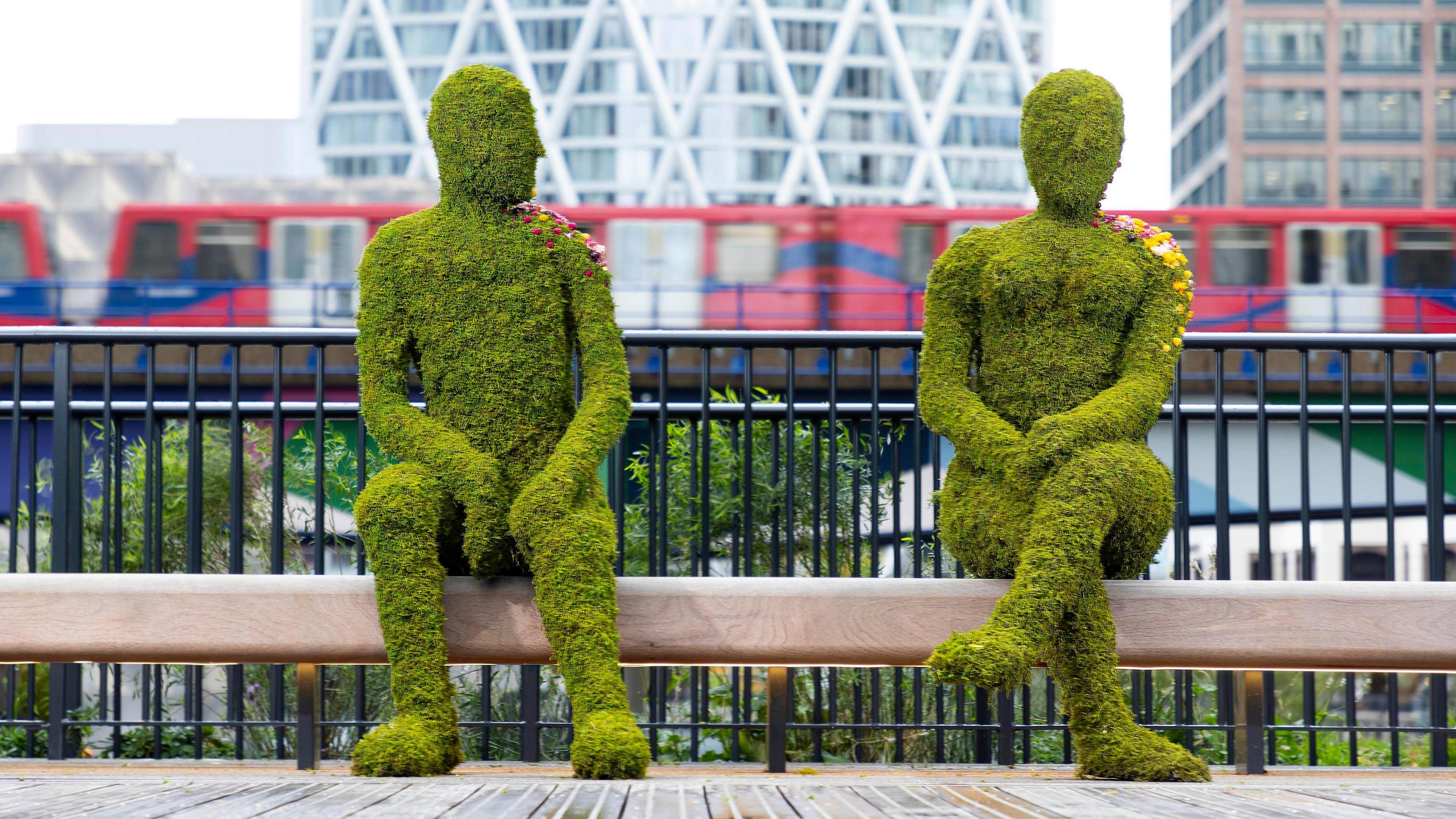
"Cheer up love, it might never happen"
- Published
An installation described as a "waterfront oasis" has been unveiled in the heart of London's financial district.
Eden Dock, in partnership with the Eden Project, has been developed as the beginning of a "green spine through the centre of Canary Wharf".
It is open to everybody and the aim is to improve the well-being of people who live or work there and those who visit.
Floating islands and humanoid mossy sculptures have been introduced to increase biodiversity.
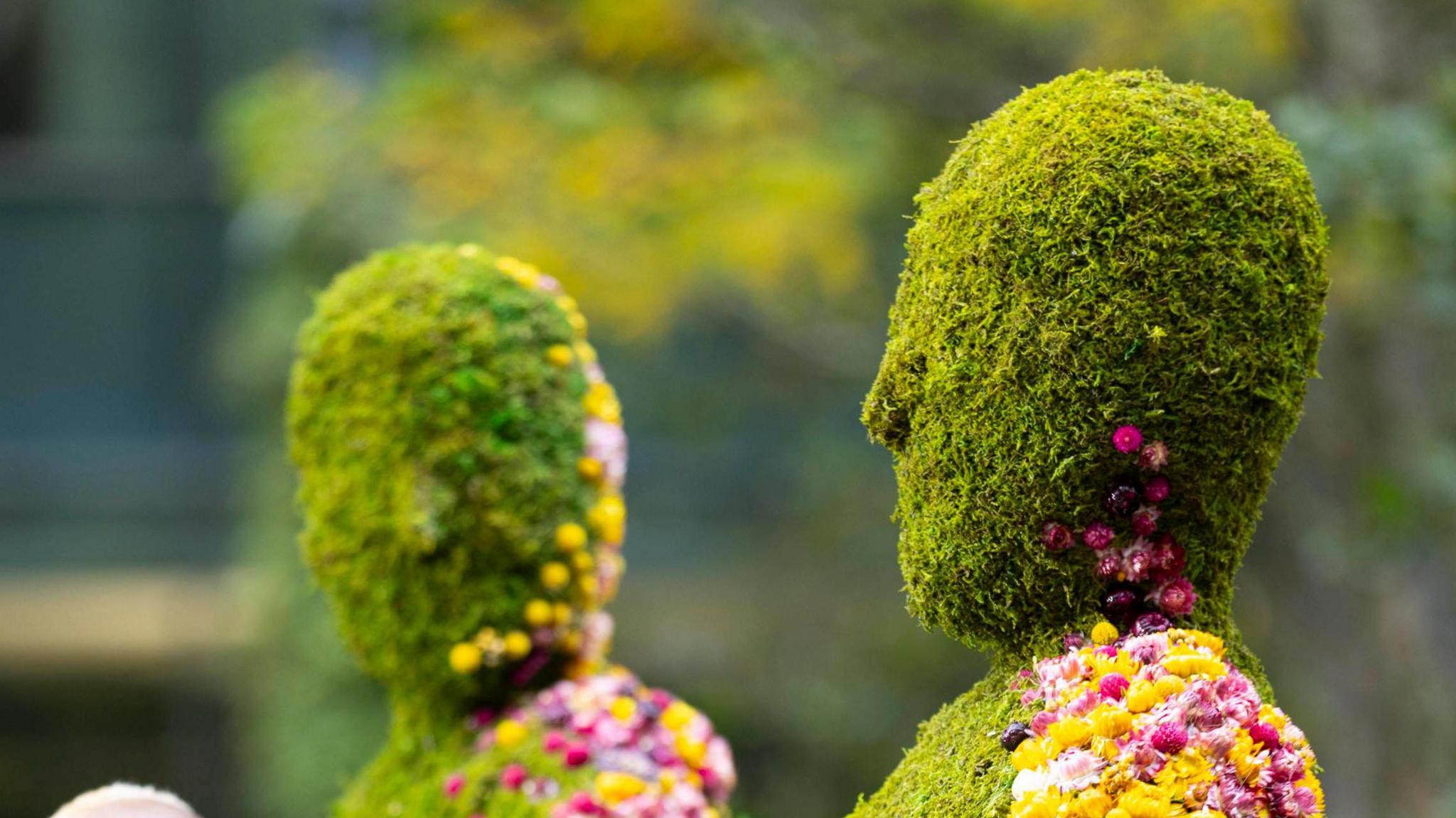
"Seriously, love, I bet you're pretty when you smile"
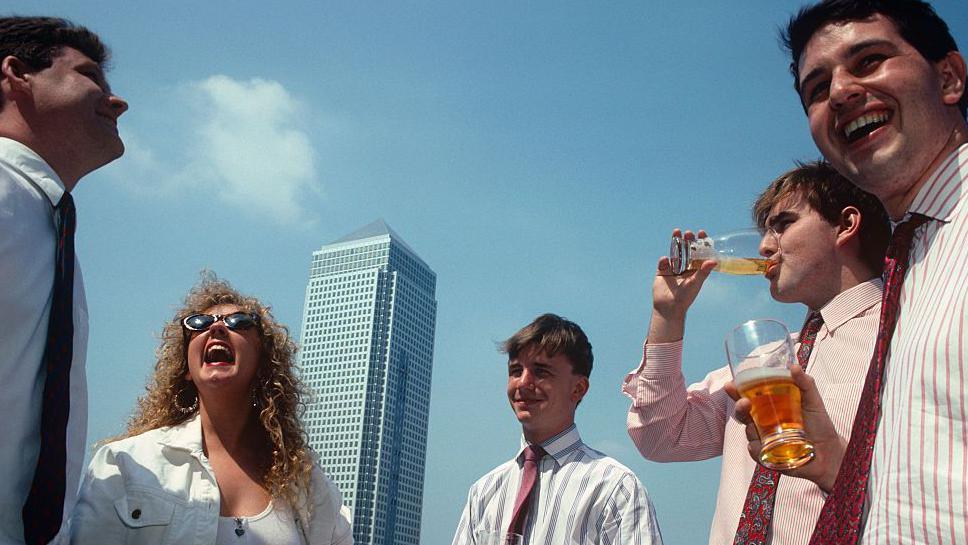
Canary Wharf in the 1990s was the site of the funniest joke ever told - and very little greenery
Canary Wharf, which gets its name from ships bearing fruit from the Canary Islands, was developed on the site of the former West India Docks.
Along with the City of London, it is considered the financial heart of the capital and is home to six of the UK's 10 tallest buildings - with One Canada Square being the tallest in the country at the time of its completion (it is now third tallest).
Numerous banks and associated businesses have their world or European headquarters there, and about 105,000 people are employed at the site.
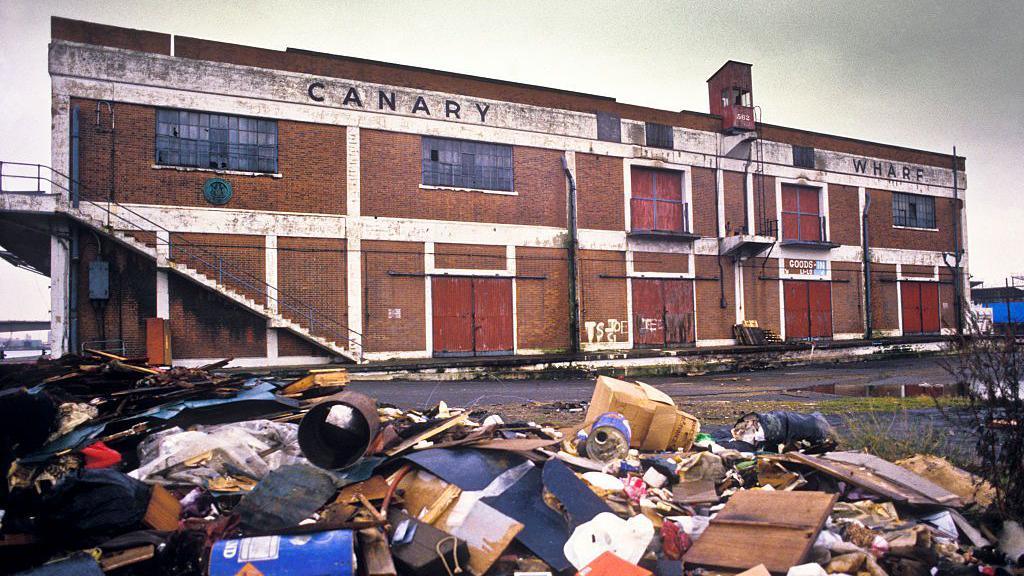
Before its redevelopment, the wharf was an unlikely site for yuppies to gather
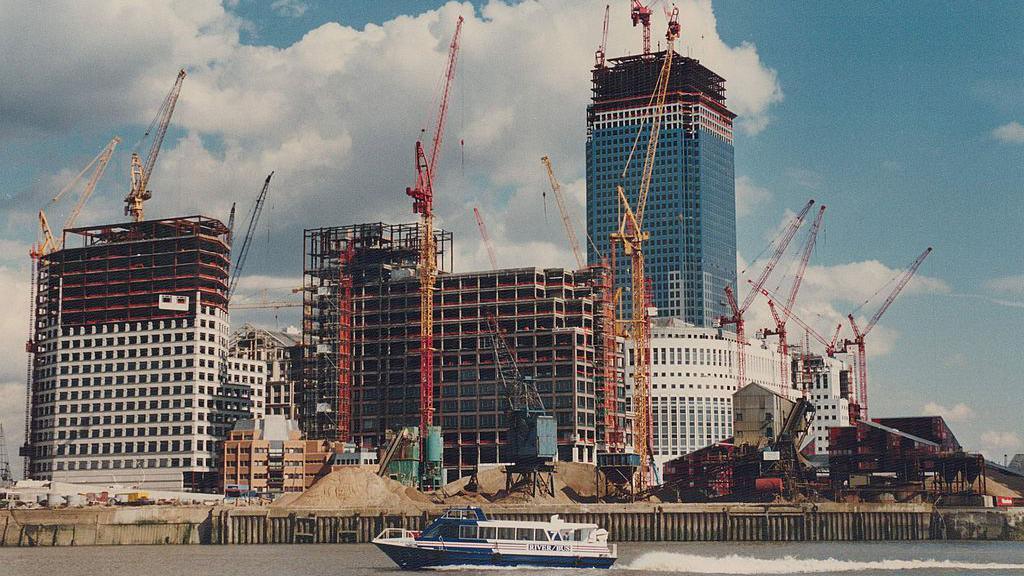
The area midway through its rebirth as a financial hub
The Eden Project, a charity and social enterprise based in Cornwall, is famous for its large "biomes" containing different ecosystems - including the world's largest indoor rainforest.
It is located in a reclaimed china clay pit, and has nurtured thousands of plant species from across the world.
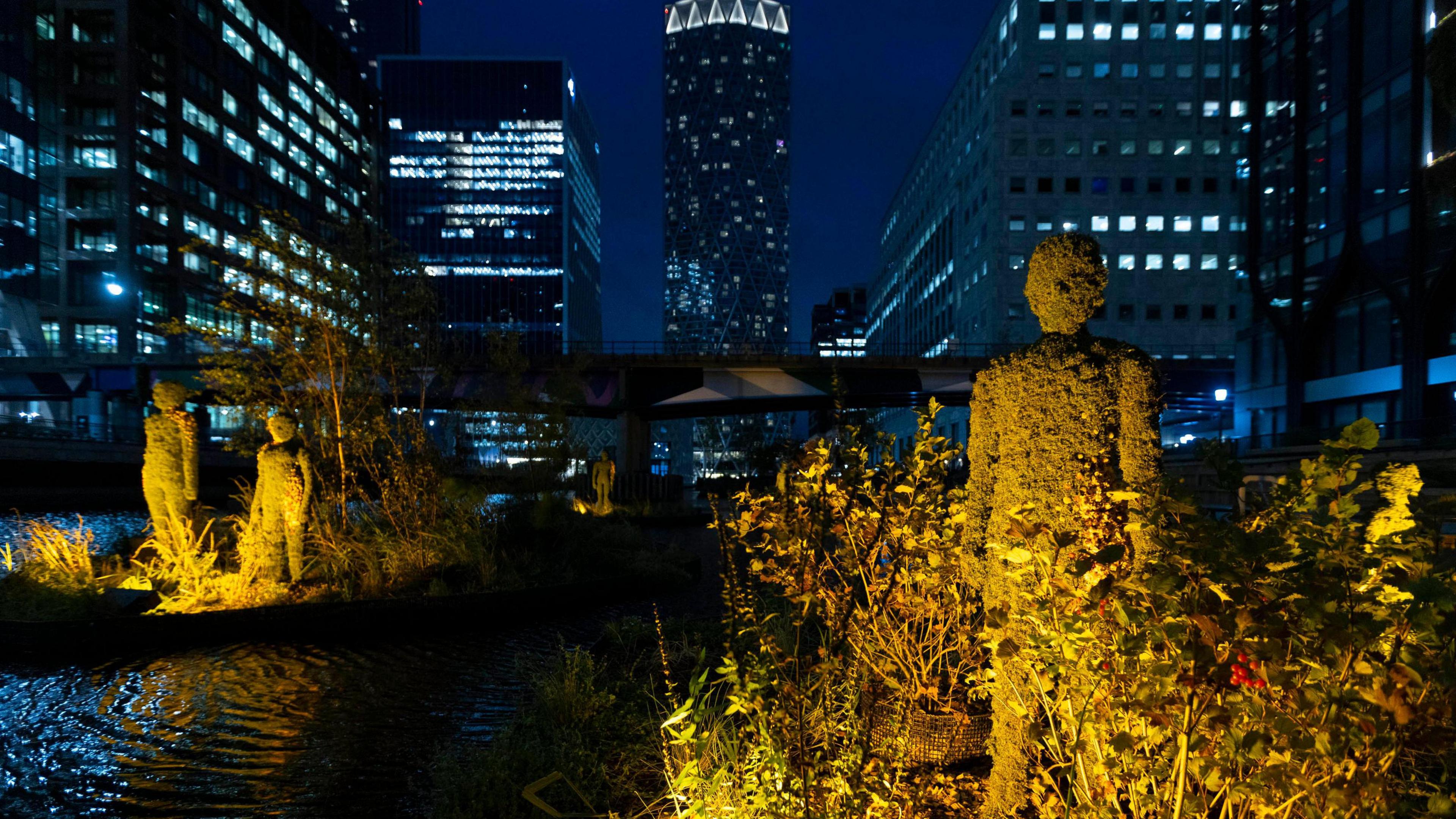
Not remotely unsettling, the faceless moss-people loom out of the dark...
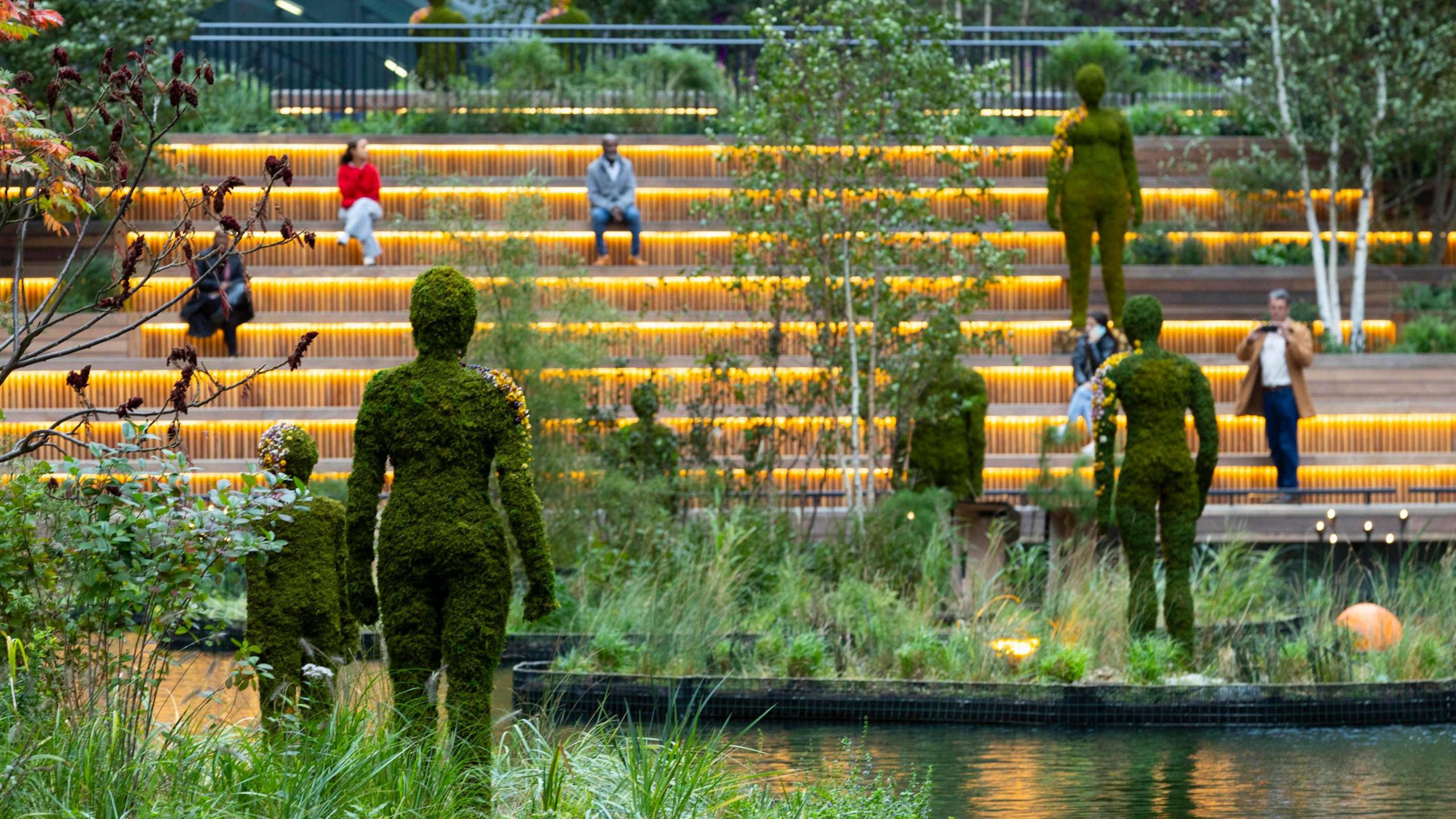
...and prepare to take over the capital
Research has suggested exposure to green spaces helps reduce stress and increase employee productivity, as well as boost physical activity and social cohesion.
Green spaces also help improve air quality and absorb carbon.
Shobi Khan, from the Canary Wharf Group, said: “Our urbanising world cannot become sustainable until cities work for nature as well as people."
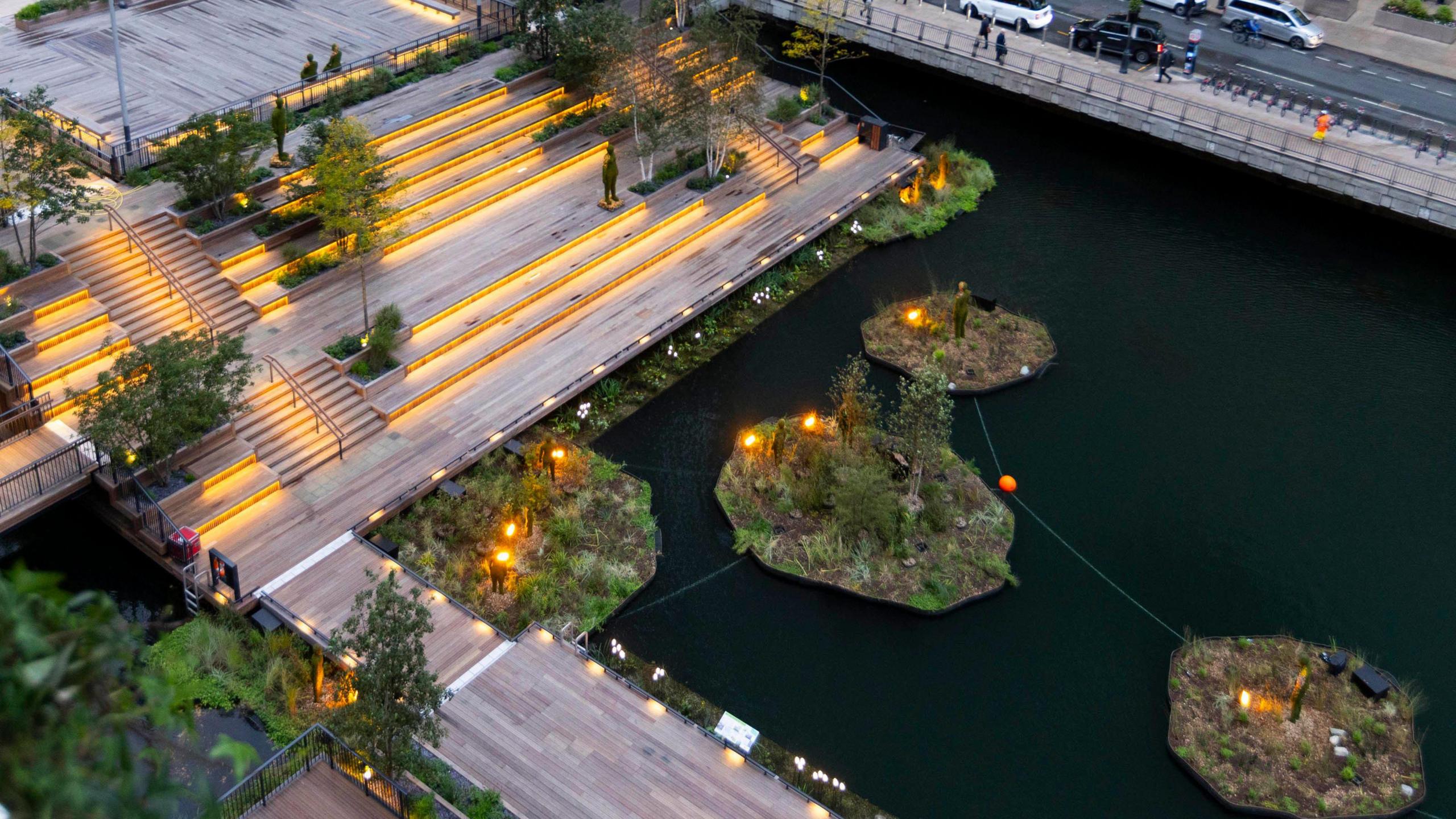
The new course for Total Wipeout is sadly lacking in giant red balls
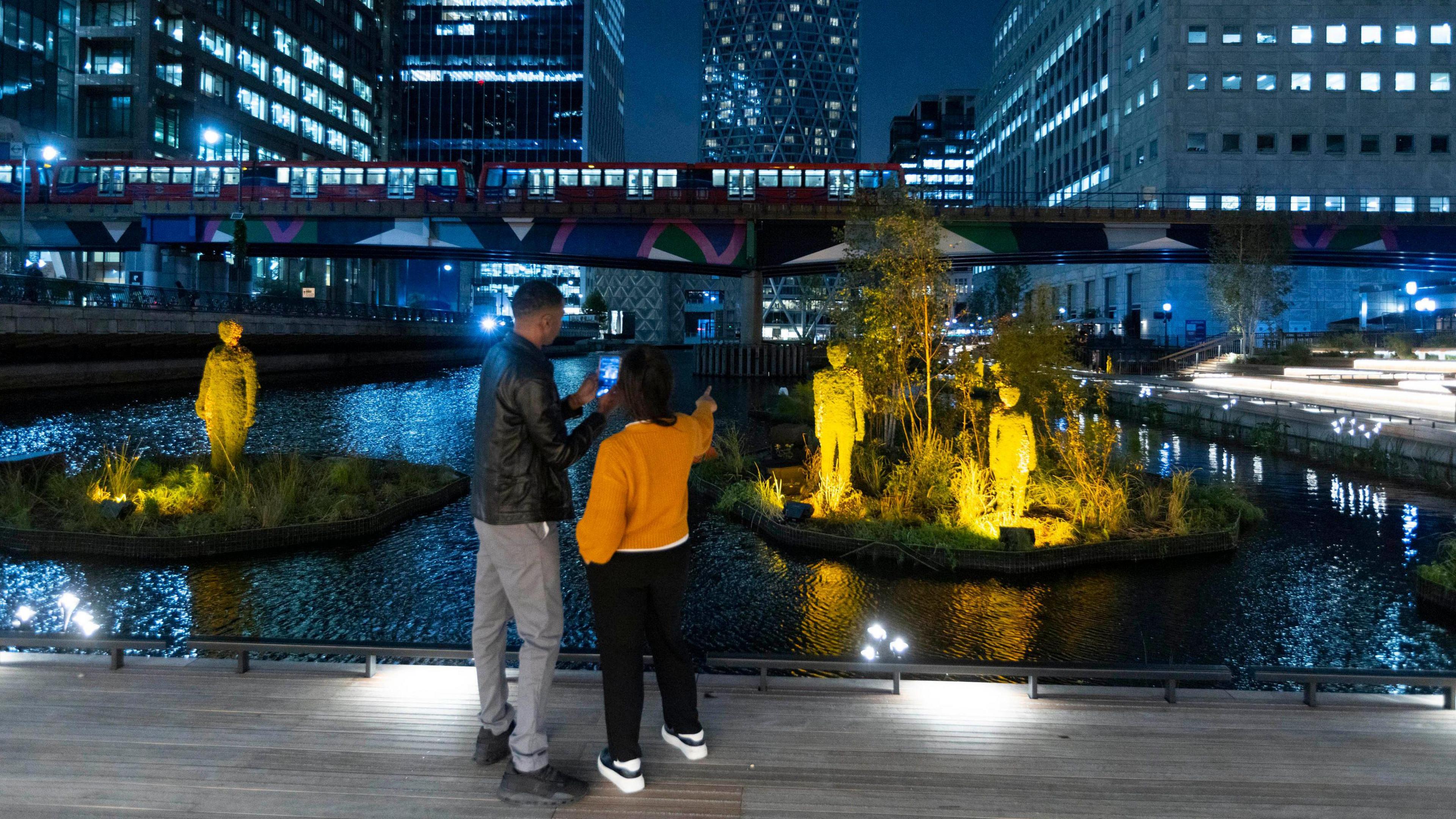
"It's there! Right in front of you!"
Listen to the best of BBC Radio London on Sounds and follow BBC London on Facebook, external, X, external and Instagram, external. Send your story ideas to hello.bbclondon@bbc.co.uk, external